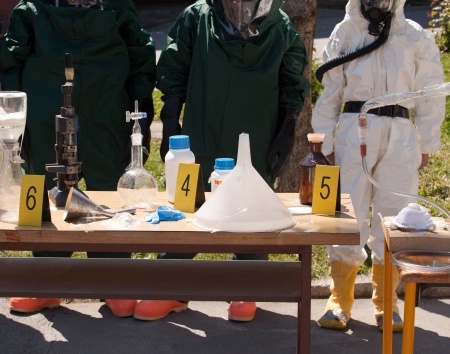
The New Jersey Supreme Court continued in relevant part: The slide contained a still-shot from the movie The Shining, depicting Jack Nicholson in his role as a violent psychopath who used an ax to break through a door while attempting to kill his family. The slide featured the words spoken by Nicholson in the movie as he stuck his head through the broken door — “Here’s Johnny!” The prosecutor commented that the character was “saying some very unthreatening words, ‘Here’s Johnny.’ But if you have ever seen the movie The Shining, you know how his face gets through that door. So, again, I just point that out to illustrate. It’s not just the words; it’s what you do before and what you do after the words that matters. And that’s what makes this a robbery.”
After the prosecutor concluded her summation, defense counsel objected to the photo’s use. During a colloquy, the trial judge offered a curative instruction, but stated, “If I do that though, I’m underscoring again, the prosecution’s arguments.” Defense counsel ultimately agreed that “it may be best left alone.” Thus, the court did not give a curative instruction. The jury convicted defendant of second-degree robbery. On appeal, defendant argued that the prosecutor’s use of the PowerPoint slide during summation denied defendant a fair trial. The Appellate Division affirmed the conviction. The Court granted certification limited to that issue.
The prosecutor’s comments and use of the PowerPoint slide amounted to prejudicial error. The duty of a prosecutor is as much to refrain from improper methods calculated to produce a wrongful conviction as it is to use every legitimate means to bring about a just one. While prosecutors are expected to make vigorous and forceful closing arguments to juries, their comments should be reasonably related to the scope of the evidence presented. References to matters extraneous to the evidence may constitute prosecutorial misconduct. When a prosecutor’s remarks stray over the line of permissible commentary, courts must weigh the severity of the misconduct and its prejudicial effect on the defendant’s right to a fair trial.
The trial judge’s comments read as though s/he was baiting defense counsel into not requesting a curative instruction. Failure to do so makes for a more difficult standard for the defendant to overcome on appeal.
